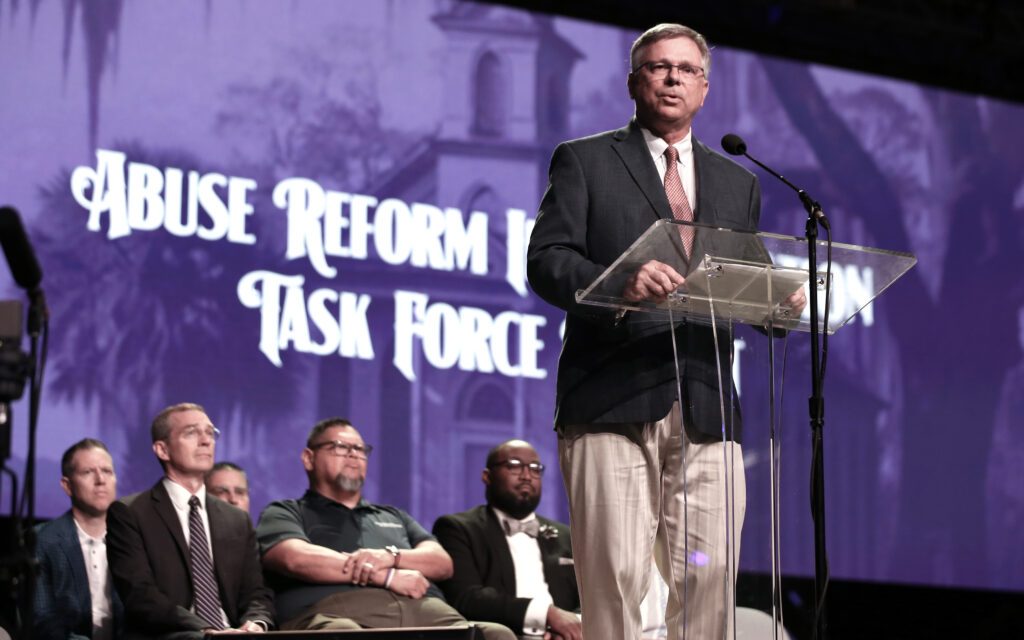NEW ORLEANS (BP) – The SBC’s Abuse Reform Implementation Task Force (ARITF) will work for another year.
In its June 14 report to messengers at the New Orleans Ernest N. Morial Convention Center, the task force unveiled a toolbox to help churches combat sexual abuse and was granted another year of existence to fulfill the mandates set forth by SBC messengers last year. That work will include continued development of a website to list individuals “credibly accused” of committing abuse. The Convention’s decision came by a an overwhelming raised-ballot vote.
The task force’s mandate from 2022 SBC messengers in Anaheim, Calif. – who authorized SBC President Bart Barber to appoint the group – defined a “credibly accused” individual as one fulfilling at least one of four criteria:
- Confessed the abuse in a nonprivileged setting;
- Was convicted of abuse in a court of law;
- Had a civil judgment rendered against them for committing abuse; or
- Has been defined as “credibly accused” according to the preponderance of evidence, as examined by an independent third party.
A MinistryCheck prototype website was unveiled during the presentation. It incorporates the first three meanings of defining “credibly accused” and will be populated with names when a legal review of those names is completed, Blalock said.
To date, the ARTIF has determined how to place the first three categories of credibly accused individuals on the website. The task force said its additional year will be utilized to develop the fourth channel, establishment of a means to conduct third-party investigations.
“We have a commitment to implement the finding of the messengers last year, including category four,” said ARITF chairman Marshall Blalock, pastor of First Baptist Church in Charleston, S.C. And we’re committed to implementing category four as it is developed.”
Blalock acknowledged “considerable discussions” about the fourth category of “credibly accused” individuals. But he assured messengers a “mere allegation” of abuse will “absolutely not” land anyone on the list.
The process for a third-party investigation is still being developed, Blalock said. However, the framework being considered by the ARITF includes investigation of the case by a licensed and qualified firm, review of that investigation by an independent legal team and opportunity for the accused person to appeal.
Jamie Arnette, pastor of First Baptist Church in Dillon, S.C., opposed granting the task force another year of existence. He said his church was placed on a list released by the SBC Executive Committee last year, but the church felt being identified with abuse was unfair and inaccurate.
Blalock responded that church names will not be listed on the new website, only names and photos of credibly accused individuals, along with their cities and states.
The toolbox of resources unveiled by the task force included materials to help leaders understand abuse prevention and response, updated Caring Well educational materials and assistance with vetting individuals to serve churches as crisis interventionists and survivor advocates.
Blalock said abuse prevention is essential to the SBC’s mission.
“We want to see our churches faithful to Christ, fulfilling the Great Commission, sending to the nations with the Good News” he said. “But if we are not protecting our people from abuse, we are compromising our mission.”
The task force will report again to next year’s SBC annual meeting in Indianapolis.




